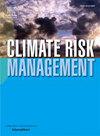环境正义作为搬迁的必要性和机遇:以诺德沃德和埃弗丁盆地为例
IF 5
2区 环境科学与生态学
Q1 ENVIRONMENTAL SCIENCES
引用次数: 0
摘要
环境重新安置是一种风险管理形式,需要有组织的社区移动,但执行起来很复杂,可能产生不公平的结果。从规划到实施再到结果,仔细检查搬迁的道德层面,为理解和解决潜在的不公正提供了途径。使用演绎环境正义框架,我们分析了两个基于补偿的搬迁,也被理解为买断:2013年奥地利埃费丁盆地的多瑙河洪水搬迁和荷兰河流空间计划的北向去圩田。我们结合文献分析(n = 62)和半结构化访谈(n = 20)来评估司法问题,重点关注分配、程序和生态维度。分配公平主要通过经济补偿来解决,在noordward提供100%的市场价值,在Eferding盆地提供80%的市场价值,但非货币考虑相对被忽视。程序公正,特别是透明度和公民参与是不够的。Eferding盆地缺乏对生态正义的考虑,但noordward使用基于自然的解决方案和空间质量的优先级带来了多重环境效益。总体而言,本文认为,公正不应被简单地视为一项需要实现的标准,而应被视为一项指导原则,以解决与搬迁有关的更广泛、短期和长期影响以及福祉。通过采用这种观点,正义可以被理解为一个积极转变的机会,使环境重新安置成为一个有可能产生有意义的有益变化的过程,而不仅仅是对当前或未来洪水风险的回应。本文章由计算机程序翻译,如有差异,请以英文原文为准。
Environmental justice lens as a necessity and an opportunity in relocation: The case of the Noordwaard and the Eferding Basin
Environmental relocation presents a form of risk management that requires organized movement of communities but are complex to carry out and can have inequitable results. A careful examination of the ethical dimensions of relocation from planning to implementation to outcomes offers an avenue for understanding and addressing potential injustices. Using a deductive environmental justice framework, we analyzed two compensation-based relocations, also understood as buyouts: the 2013 Danube flood relocation in Austria’s Eferding Basin and the Noordwaard de-poldering in the Netherlands’ Room for the River program. We combined document analysis (n = 62) and semi-structured interviews (n = 20) to assess justice concerns, focusing on distributive, procedural, and ecological dimensions. Distributive justice was primarily addressed through financial compensation, offering 100 % market value in the Noordwaard and 80 % in the Eferding Basin, but non-monetary considerations were relatively neglected. Procedural justice, particularly transparency and citizen participation, were insufficient. Considerations of ecological justice were absent in the Eferding Basin but the Noordwaard’s use of nature-based solutions and prioritization of spatial quality led to multiple environmental benefits. Overall, this paper argues that justice should not be viewed simply as a criterion to be fulfilled, but rather as a guiding principle for addressing the broader, short and long-term impacts, and well-being related to relocation. By adopting this perspective, justice can be understood as an opportunity for positive transformation, allowing environmental relocation to be framed as a process with the potential for meaningful, beneficial change rather than solely a response to current or future flood risk.
求助全文
通过发布文献求助,成功后即可免费获取论文全文。
去求助
来源期刊

Climate Risk Management
Earth and Planetary Sciences-Atmospheric Science
CiteScore
8.20
自引率
4.50%
发文量
76
审稿时长
30 weeks
期刊介绍:
Climate Risk Management publishes original scientific contributions, state-of-the-art reviews and reports of practical experience on the use of knowledge and information regarding the consequences of climate variability and climate change in decision and policy making on climate change responses from the near- to long-term.
The concept of climate risk management refers to activities and methods that are used by individuals, organizations, and institutions to facilitate climate-resilient decision-making. Its objective is to promote sustainable development by maximizing the beneficial impacts of climate change responses and minimizing negative impacts across the full spectrum of geographies and sectors that are potentially affected by the changing climate.
 求助内容:
求助内容: 应助结果提醒方式:
应助结果提醒方式:


